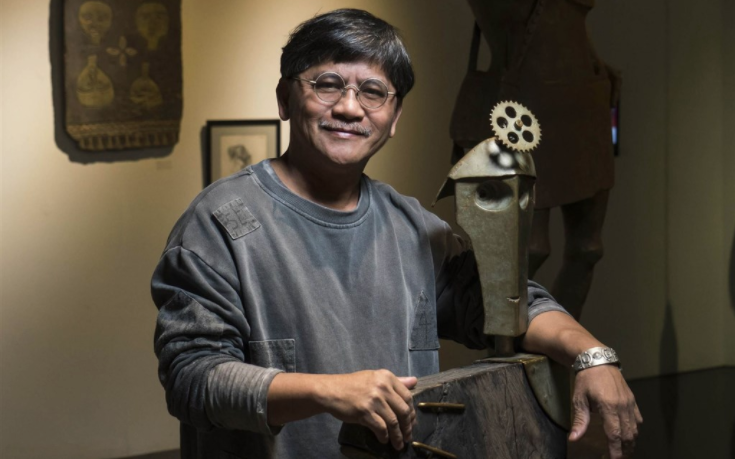
Sakuliu Pavavaljung will no longer represent Taiwan at the upcoming Venice Biennale after multiple women came forward accusing the artist of sexual assault. The move comes weeks after Documenta suspended the artist from participating in the Kassel event.
The Taipei Fine Arts Museum (TFAM), which commissions Taiwan‘s pavilion in Venice, said the decision was made in order to protect the international diplomatic image and reputation of Taiwan, as the news had already traveled outside of the island. The museum also said it wanted to ensure that discussion of the Taiwan Pavilion remained focused on the art itself rather than the controversies.
“Taipei Fine Arts Museum has always taken pride in upholding the highest professional standards to promote artistic development. The museum also opposes any violation of individual rights,” the museum said in a statement on Wednesday.
TFAM did not say whether it would appoint a replacement artist in Venice.
The National Culture and Arts Foundation announced on Wednesday that it would cut its sponsorship of Pavavaljung’s exhibition at Documenta 15, regardless of the whether the artist was ultimately allowed to participate or not. On December 21, Documenta said in a statement that it had temporarily suspended his exhibition “while the facts are clarified.”
The foundation, which gave the 61-year-old artist the coveted National Culture and Arts Award in 2018, will meet on January 26 to decide whether it will revoke the award.
In the Giardini for the Venice Biennale. Image courtesy Ben Davis.
The controversy emerged in mid-December when artist Kuo Yu-ping wrote in a Facebook post alleging a Taiwanese artist with a fictional name had sexually assaulted a 19-year-old woman, who was an admirer of his art and had been studying with him. The post erupted into a scandal as the art community made connections between the post and Pavavaljung, who is widely known for creating works across various media and advocating the preservation of Indigenous culture through art.
Rumors followed of an allegedly leaked conversation revealing a representative for the artist coercing a victim to sign an agreement to drop her case.
Subsequently, more women have come forward with accounts, including an engineer named Yu Yue-lien, who alleged that Pavavaljung tried to sexually assault her in 2006, but she managed to escape.
The events led to an online petition signed by 1,152 art workers and others, condemning Pavavaljung for abusing his status as a well-established, award-winning artist, while urging the art community to stop working with him unless his name is cleared.
The Pingtung district prosecutors office has launched an investigation into the sexual assault accusations, even though no victims have taken any legal action. There have not yet been any charges against Pavavaljung, who has denied all allegations. The artist posted a long statement on his studio’s Facebook page, insisting on his innocence.
Other artists have been dropped from major exhibitions in recent years after sexual misconduct allegations came to light. French artist Claude Lévêque’s work was pulled from the Museum of Modern and Contemporary Art Geneva and his gallery Kamel Mennour suspended its relationship with the artist after a criminal investigation into alleged sexual assault opened last year. And Indian artist Subodh Gupta stepped down from a guest curator role at the Serendipity Arts Festival in 2018 following sexual harassment allegations from an anonymous Instagram account. He denied the accusations and sued the holders of the account, who agreed to apologize and withdraw the posts.